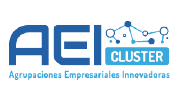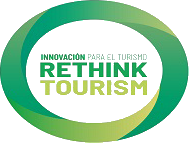GASTROSENSE

- New computational neuroscience systems for modeling multi-sensory experiences and environmental well-being in the food industry spaces.
Summary
Participants in the value chain of gastronomic space equipment (manufacturers, distributors, and habitat product specifiers) must operate in a market that increasingly demands personalization. It is becoming more recognized that there is a need to study not only the quality of the experience related to the functional dimension or intended utility of the space but also the emotional needs, feelings, and impressions, as well as the well-being conditions induced by the physical-environmental qualities of that environment.
The GASTROSENSE project focuses its activities on the exploration of computational neuroscience technologies to deliver new, non-invasive neurological, physiological, and environmental-based data that impact the dynamic adaptation of spaces in the gastronomic industry in a more humanized manner. The primary goal is to enhance the personalization of interior design products by considering the behaviors and everyday or spontaneous interactions of diners and restaurant professionals. This, in turn, creates better atmospheres, fosters stronger emotional attachment to the service, and ensures greater well-being.
Transferable results to companies
The project's results will be applied to the digitization and improvement of processes in the value chain of equipment and the design of experiences in the gastronomic industry spaces, specifically:
-
SMEs that manufacture and supply construction materials and equipment will benefit from a transition from deterministic or static product design (traditional approach) to adaptive and dynamic product design, which is more personalized. This transition enables an ongoing relationship between the manufacturer, product specifier, and gastronomic space manager beyond the moment of product sale.
-
Product specifiers, space designers, or interior design studios will have easier access to more personalized products and new empirical data regarding a product's performance and its influence on the development of the gastronomic experience. This will empower them to strengthen their differential value layer in the projects they manage in this market segment.
-
Project promoters or managers of gastronomic industry spaces will have enhanced decision-making capabilities when acquiring habitat products that align better with the desired gastronomic experience design within the space. They will also be able to optimize tangible and intangible resources in hospitality and restaurant businesses.
-
Funding
Innovative Business Clusters (AEI) Program by the Ministry of Industry, Commerce, and Tourism: AEI-010500-2023-274.
Participants










